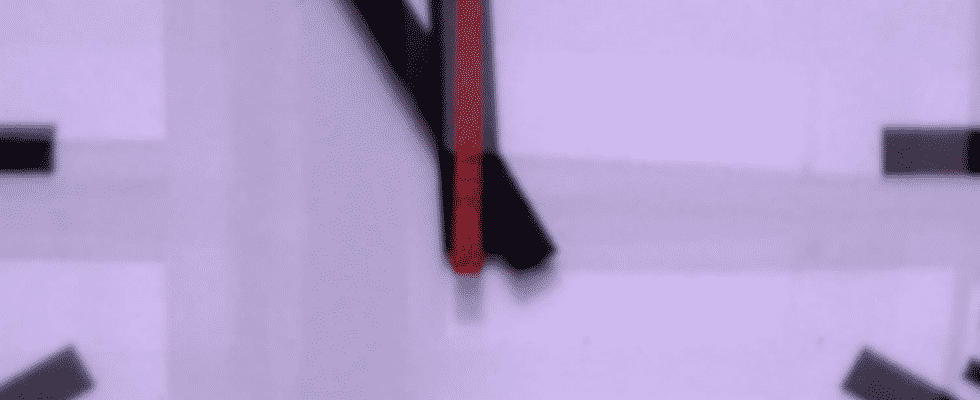The transition to winter time 2022 took place overnight from Saturday to Sunday. If the end of the time change is at a standstill, the measurement remains in the boxes and some specialists recommend staying on winter time…
This Sunday, October 30, at 3 a.m., France went to 2 a.m., recovering an hour lost last March, when switching to summer time. The time change took place overnight from Saturday to Sunday. But like every year when you wake up, you wonder if your watches and other devices have automatically taken this time change into account or if they are still at the old time. Should we move forward, move our clock back or simply do nothing? The easiest way is often to check the time in real time on the Internet via the Speaking Clock or other similar services.
The 2022 time change risks generating several minor inconveniences, as every year. But according to several neurobiologists and neuropsychiatrists, the latter can also generate more significant disorders. Sleep disorders, stress, fatigue, difficulty concentrating or even irritability can be observed after a badly integrated time change. The cause: a break in our biological clock also called “chrono-break”.
Winter time all year round?
When the European Commission proposed in September 2018 to abolish the change of time, it envisaged that the last transition to summer time would take place in 2019. But this disappearance is now subject to the decision of the Member States, the difficulty being to agree on a coordinated schedule and that everyone remains in chronological phase with the neighboring countries.
In March 2019, an online consultation organized in February by the French National Assembly’s European Affairs Committee received more than two million responses, with almost 84% in favor of ending the time change. Daylight saving time was preferred by a majority of responses to this consultation. However, summer time is at GMT+2, which is two hours behind the time of the sun, compared to one hour behind (GMT+1) in winter. “A priori we are still made to live with the sun”, recalled Joëlle Adrien, sleep specialist at the Hôtel-Dieu in Paris to AFP the same year. In France, summer time corresponds to two hours ahead of solar time, which “is not a good idea”. Specialists in biological rhythms recommend sticking to winter time.
The agricultural world would also lean more towards winter time. “During the harvest, in the middle of summer, we have a two-hour difference with solar time. So we start rather late and we are sometimes forced to finish at night”, explained Luc Smessaert, member of the climate change commission at the FNSEA at the time.
